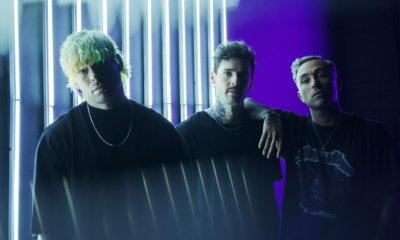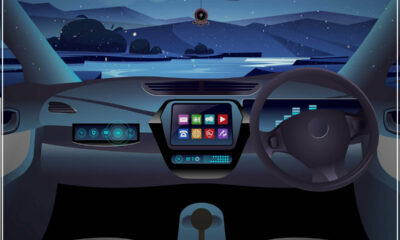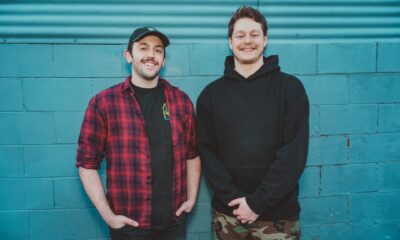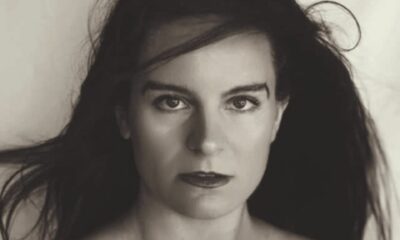Interviews
Sloane Details Discovering Jazz in His Teens, New EP ‘Too Young To Be Lonely,’ and Helping Henry Grimes
Keeping the vibe and the spirit of jazz alive is Nick Rosen, or as he is more often referred to, Sloane. We were recently fortunate enough to chat with the artist about his new single and title track to his upcoming EP, Too Young To Be Lonely, the irony of his upbeat sound, and the story behind his contributions in rejuvenating Henry Grimes‘ career.
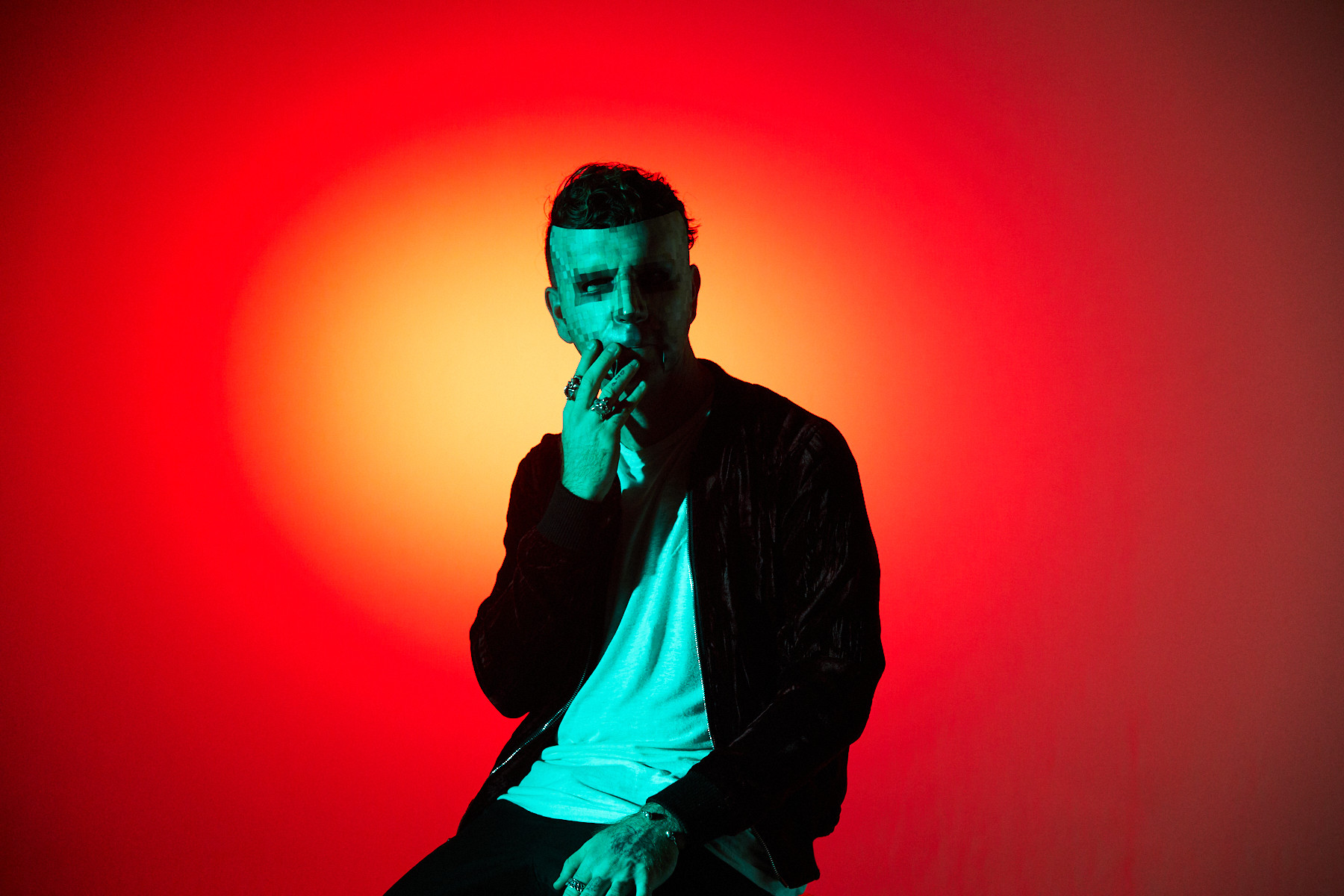
Keeping the vibe and the spirit of jazz alive is Nick Rosen, or as he is more often referred to, Sloane. With new music recently recorded, Sloane is getting set to release his EP Too Young To Be Lonely, a collection of six addictive experimental electro-pop songs that push Sloane forward into new musical territory. While it may sound upbeat, Too Young To Be Lonely deals with some serious subject matter with the artist attempting to come to terms with issues such as depression, loneliness, and the emptiness of our social media-driven culture. Featuring glittering, polished production, Sloane mixes a lot of light and dark on this new collection in an attempt for both him and the listener to exorcise some personal demons.
Discovering music at a young age, Sloane initially was drawn towards Los Angeles punk rock before he discovered jazz as a teenager, eventually becoming obsessed with learning the bass. As a teen, he helped jazz legend Henry Grimes resuscitate his career, an artist who, at the time, had been presumed to be dead for decades. After he graduated college, Sloane began to make a name for himself thanks to his soundtrack and production work in the world of film and television, recording scores for Super 8, Star Trek, LOST and also acting as the music director for significant live broadcasts such as NBC’s Fourth of July celebration and Christmas in Rockefeller Center. He has also found the time to situate himself as a prolific session musician who has worked with artists such as Phantogram and Tinashe.
We were recently fortunate enough to chat with Sloane about his new single, the title track to Too Young To Be Lonely, the new EP, the irony of his upbeat sound, and the story behind his contributions in rejuvenating Grimes’ career.
With a musician as active as yourself, there’s a lot to ask so why don’t we start with your new single “Too Young To Be Lonely.” What inspired the writing of this song? What are you trying to say with this one?
Sloane: “This song actually started as a song for my writing partner Ian Gott (whom I wrote the whole new EP with), it just wasn’t working for him so I took it and completely redid the production and we tracked my vocals and it just clicked. Me and Ian were having sessions a few days a week just writing tons and tons and our only goal was to try and write the most honest and authentic songs as possible. This song is about being ok with things that go wrong, I’m talking about a specific relationship in this song, and just realizing that I am too young to be lonely or held back because of one person or incident.”
How did you begin to develop “Too Young To Be Lonely” as a song? What were the first pieces of the song that came together? Was it the lyrics? The melody?
“I pretty much start every song around a concept, or event, that I want to write about. From there I always get try to get the song done (lyrics and general form/chords) before I start producing much. I tend to write with vocals and piano or acoustic guitar mostly. For ‘Too Young,’ originally the song was based around the acoustic guitar when first produced it, but I wanted to make it more anthemic/fun to really accent what I was saying and where the song was going. I got the new production about 80 percent done and then had my friend Juan Ariza (artist name Ariza) help me finish the drums and synths and the song finally seemed to speak the way I felt that it should.”
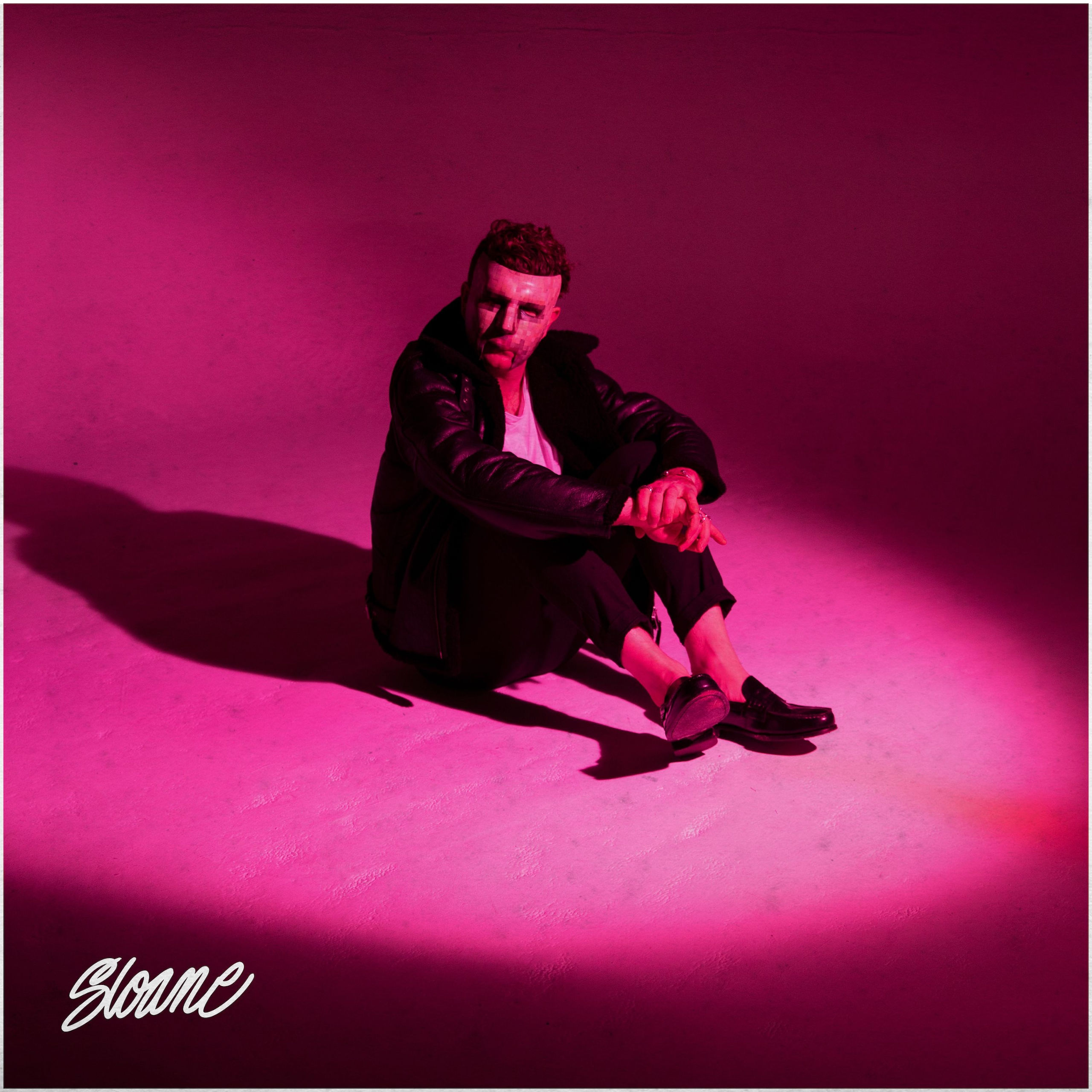
Artwork for “Too Young To Be Lonely” by Sloane
“Too Young To Be Lonely” is the title track to your new EP that’s due out later this year. Where are you at with the recording of the album? Is it nearing completion?
“I actually wrote all the songs for the EP during the middle and end of 2019 and then got them all mixed and mastered, so in January of this year I turned in a completely done EP to my label. For the six songs that ended up making the EP, I think I wrote 20 total, I presented them all to my label in like October or November of 2019 and then we chose the ones to focus on finishing for this EP.”
What can you tell us about the EP? What type of songs and themes can we expect to hear once it arrives?
“This EP is my first full body of work where I sing, write, and produce all the songs, except one song where there is a guest singer. This is really special to me because all these songs are personal about things that I am and was going through. I don’t think I’ve ever made a more honest body of work and I am looking at this EP like a beginning, it feels like my musical/personal journey over the last eighteen years has gotten me to a place personally and professionally to finally make an EP like this.”
It’s ironic that your music is rather upbeat and seems very positive, but songs on the EP deal with depression, loneliness, and the emptiness of our preoccupation with social media. Was there any intent behind making the songs sound upbeat but layering them with bleak topics and ideas?
“Honestly, the topics that I’m dealing with on this EP such as my own mental illness, depression, and loneliness are heavy but at the same time, I feel so much better writing them and making them because this music is my actual therapy, so there is the idea of dark and light or poison into medicine within all of them. I really want anyone to be able to understand what I’m saying in the songs and hopefully be able to connect with the topics, to know I’ve been through these things and came out ok. While mental illness and depression are talked about a lot these days they still can be taboo topics for young adults and older adults and I really wanted to make songs that everyone could connect with on these topics.
So I wanted the songs to be anthemic and celebratory, not to be ironic, but to hopefully bring smiles to peoples faces, sometimes while we are crying and dealing with these intense life issues we also want to remind ourselves to dance and smile. Many of these songs were for myself to be able to sing and dance to while I was getting through some really challenging life moments. I wanted to make personal, real songs that are easy to digest for any listener, I wanted a twelve-year-old or a 65-year-old to be able to connect and dance along so I was trying for some upbeat, fun music to tell these stories and make them easier to connect with.”
I saw that you just dropped a fun new part live, part animated music video for the song “In My Head.” Who created the idea for the video and how was it developed?
“I have a team Ride or Cry that helps me with my branding and socials and Morgan Freed who is one of the owners of the company helped make the concept for the video and directed it and I couldn’t be happier with how it turned out. We have also been lucky to find this amazing animator Nat Urwin who lives in the UK and she has been awesome doing this video and pretty much all of my animations for us. We all decided that it would be cool to have animations be a big part of the identity for this project.”
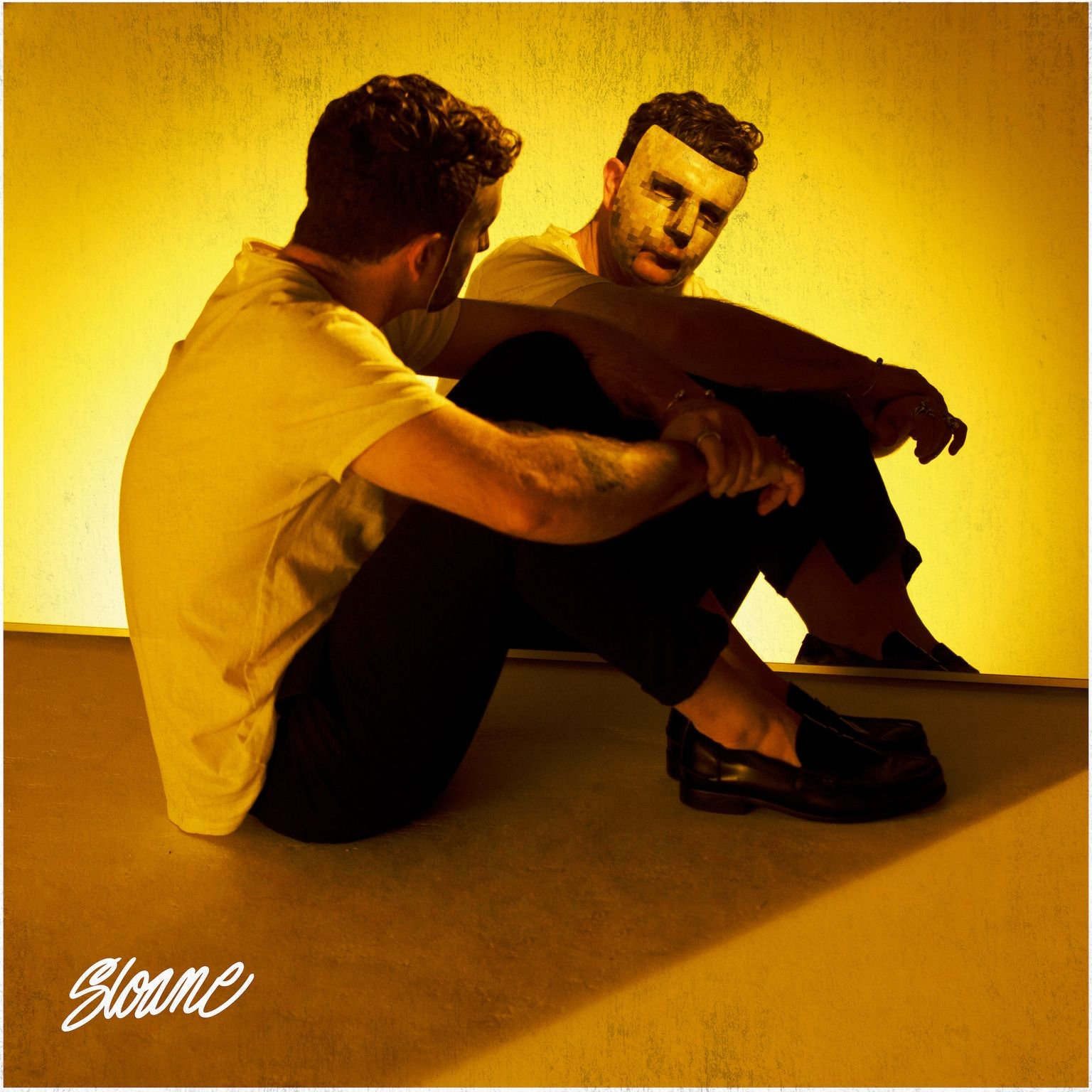
Artwork for “In My Head” by Sloane
With the developmental process of this EP at least nearing completion, how would you say it’s, if at all, changed you as a person or as a musician? Would you say that this has been a period of personal growth for you?
“So much personal growth, the amount of confidence and awareness that I gained by pushing myself to record this EP has been so amazing. Challenging myself to write, produce and sing this whole EP has made me feel so proud of myself and am finally starting to discover my sound and how I want to communicate with music.”
You discovered jazz as a teenager which is an age range that a lot of teens are just discovering hip-hop, rock, and R&B music. Jazz tends to be more for an adult audience with more sophisticated musical tastes. What attracted you to jazz at such a young age?
“I was drawn to the freedom I heard in artists such as Albert Ayler and Ornette Coleman and then I loved the community that I discovered within the Pan Afrikan Peoples Arkestra and the musical community of LA that spawned from Horace Tapscott and the Leimert Park scene. I always felt strange and out of place, always hearing so much in head, but when I first heard Albert’s music it was like someone telling me ‘you’re ok, you have a place.’ My whole life shifted from being an LA punk kid to taking the bus to Leimert Park weekly and learning all I could about music and life from the elders and legends down there. When I would listen to jazz or play jazz I felt connected with humanity and music on a new level and it energized me so much.”
You probably get asked this a lot, but you must tell us about your relationship with the late jazz legend Henry Grimes. You were instrumental in helping revitalize Henry’s career before his passing. How did this all take place?
“So, I was lucky enough to have a teacher Steve Isaordi in high school, he was the one who first played me Albert, and Horace, all the great LA jazz, he actually drove me to Leimert Park to see Dadisi Komalafe play, which was my first time going there when I was fifteen. Steve knew that I had become super obsessed with the music of Albert and I told him that I needed to work with someone who had worked with Albert. Around that same time, this social worker in Georgia published an article in the magazine Signal To Noise about how he thought Henry was living on Skid Row in LA. I called the social worker, Marshall I believe, and told him I thought I could help Henry out so Marshall gave me the last know location he had for Henry, some super shitty live-in hotel on Skid Row.
After a month of going down there and leaving paper messages all over the hotel for Henry, I finally got a call from him! I went down to meet him with my friend (musician) Joey Dosik and we took him to lunch at the Pantry in LA and just chopped it up about what he has been doing and where things were at, he had never heard of CDs and had no idea that so many albums he had played on had been released. I then got my high school to pay Henry to give me bass lessons so me, Joey and Miguel Atwood-Ferguson starting studying with Henry a few days a week. Henry would stay with my mom and I a lot of nights and come to school classes with me and then we would spend all my free time talking music and life.
I ended up getting a ‘band’ together of some amazing LA legends like Nels Cline and Bennie Maupin and we started doing gigs around LA that in turn starting getting a ton of attention. Eventually, Henry got an offer to go play the 2003 Vision Festival in New York as the featured artist with William Parker’s big band and an anonymous donor from my high school paid for my plane ticket so I could go with Henry for this, I missed my senior prom to do this trip (laughs). I wasn’t supposed to play but William heard me practicing backstage and said I should play bass with Henry so William let me play his bass for the show (William was also the one who had sent Henry a bass to play in LA) and me and Henry played duel basses for his first big festival gig back.”
Without a doubt, Henry led a very interesting life. For over 30 years, he literally disappeared from life and the music scene altogether, with many people assuming he had died. Did you ever happen to find out why he just vanished for such a long period of time?
“Henry had struggled with various mental illness and had gotten overwhelmed and tired of the scene and decided to just go do something else. He was a security officer for a while and did some odd jobs, he didn’t play music but said he always exercised his mind and did tons of push-ups so he was super ready to jump back in when the opportunity arose. We bonded because he loved sci-fi, superhero, comic stuff and I remember the first time going to his hotel room seeing some action figures and immediately knew we would be on the same page.”
Henry’s death is even sadder in that he passed away in April due to complications from COVID-19. When was the last time you spoke with Henry? Were you in contact with him prior to his passing?
“We spoke a few years ago, unfortunately, his wife wasn’t the most fond of me because she thought I had tried to take credit for bringing him back. People had tried to make a movie about me and Henry (not my idea), I didn’t bother to argue because while she was wrong about me she did help Henry and I think had a good heart and helped give him a great new career and life so I’m grateful to her. For a while, after high school, I would go to his New York place and chop it up and have dinner and play when I was there but after a while that fizzled out and I’m sad to say I hadn’t talked to him probably in five to six years. I really miss him and am terribly sad we won’t be playing ever again but I feel blessed for all the moments that we had.”
Congratulations on your new single and your upcoming EP release. What can you tell us about your plans in the near future with regards to writing and recording?
“I’ll be releasing one song a month until the EP comes out in October, then I have a few collaboration projects I will be releasing, as well as starting a new EP or album cycle in 2021. I also have a ambient music project with my friend Josh Jacobs and we just released our debut EP and will be doing another one this year. I have written so much so far in 2020 and am excited to start getting it all out!”
-

 Alternative/Rock1 week ago
Alternative/Rock1 week agoThe Warning Shake the Foundations of a Sold-Out Leeds Stylus [Photos]
-
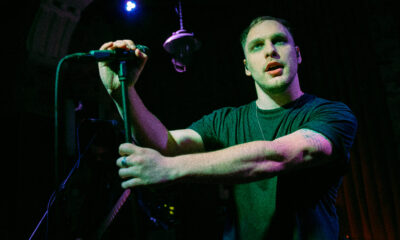
 Alternative/Rock3 days ago
Alternative/Rock3 days agoThe Cruel Knives Headline Top Night of British Rock at Manchester’s The Lodge [Photos]
-

 Alternative/Rock3 days ago
Alternative/Rock3 days agoThe V13 Fix #012 w/ Dååth, Unearthly Rites, maybeshewill and more
-

 Alternative/Rock1 week ago
Alternative/Rock1 week agoThe V13 Fix #011 w/ Microwave, Full Of Hell, Cold Years and more
-

 Indie1 week ago
Indie1 week agoDeadset Premiere Music Video for Addiction-Inspired “Heavy Eyes” Single
-
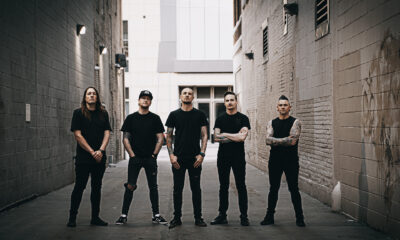
 Interviews5 hours ago
Interviews5 hours agoKill The Lights Michael ‘Moose’ Thomas Talks Success, International Bandmates and more
-
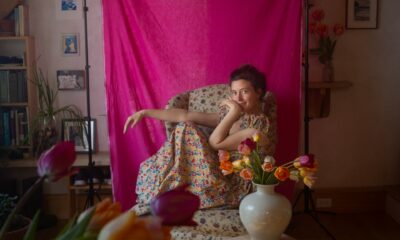
 Folk1 week ago
Folk1 week agoKatherine Perkins Strikes the Right Tone with Her “Hold On” Music Video Premiere
-

 Country2 weeks ago
Country2 weeks agoBrooke Ashton Chats About Her “Someone” Single, Creative Process, and More!

